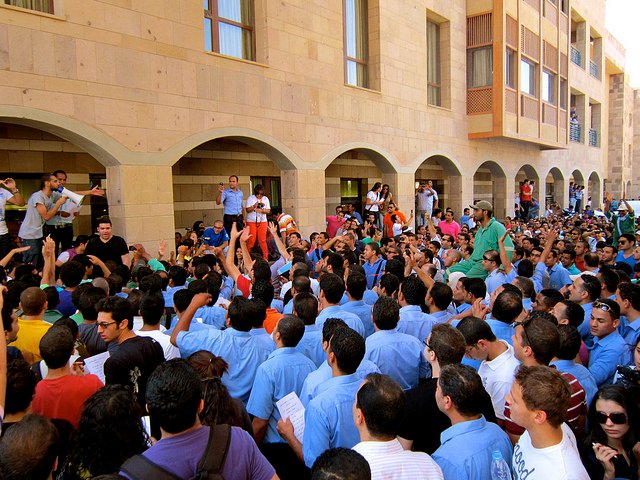By Ekemini Pius
- Title: The Honking
- Author: Mulumba Ivan Matthias
- Publisher: Mattville Publishing House
- Number of pages: 311
- Year of publication: 2017
- Category: Fiction
Set in Uganda, Mulumba Ivan Matthias’s The Honking examines the breakdown in human relationships and social systems, and how this leads to failure in the lives of individuals, in particular, and society, in general.
Lecturers of Makerere University are threatening to strike over unpaid salaries. Mukalazi, a professor, is so aggrieved that he attends a secret meeting at the house of another lecturer, Kalebu, to plan the strike. This theme is significant because it reflects the basic problem with African universities and why they are unable to compete with others elsewhere: most are underfunded, hence lacking in crucial infrastructure; lecturers are underpaid, leading to ‘brain drain’.
But the lecturers are themselves part of the problem. One day, while Mukalazi is lecturing, a student named Diana walks nonchalantly into the class and refuses to participate in any of the discussions. Mukalazi knows she has a history of taking his classes with levity so he decides to give her a retake – which is the right thing to do – whereupon she offers him sex in exchange for a pass. She gives him her phone number, and he goes ahead to set up dates with her in anticipation of sexual activity. This is an epidemic that has affected many African universities. Conversely, when students refuse their advances, these lecturers victimise them by giving them low marks even when they do not deserve them.
The author also shows how Makerere University, itself a microcosm of the Ugandan government, fails to provide adequate security for its charges. Students are killed with impunity. One such unfortunate student is Patience. She is shot dead in her hostel by an unknown gunman in front of her friend, Brenda, who subsequently suffers from post-traumatic stress disorder. Here, Matthias raises a salient point, which is the prevalence of cultism in universities across the continent. The cultists terrorise and even kill innocent students because the government fails in its duty to protect them. Matthias opines that learning can only truly occur in spaces that are safe; whenever students have to worry about their safety in university, it subtracts from the quality of their learning.
The novel also tackles the theme of civil unrest. When the students are finally fed up with the dysfunction and preventable deaths, they go on rampage, pelting the Vice Chancellor’s house and looting shops in the city. The anti-riot police crack down on them with teargas and rubber bullets, beating and arresting them. This underscores the way African governments respond to any challenge to their authority in order to divert attention from the main issues, on the grounds of protecting lives and property.
The author then addresses failures in the smallest unit of society: the family. Mukalazi has long been cheating on his wife, Priscilla, and intends to add Diana to his list of mistresses. By now, weary of his incessant philandering, Priscilla hardens her heart against him. She stops washing his clothes and cooking for him and locks him out of their room. Kalebu, on the other hand, beats his wife, Sylvia, at the slightest provocation, sometimes to the point where she has to be hospitalised. As a result, her love for him begins to wane and she cheats on him with Kaggwa, a student. Another student, Aliker, invites his friends to party at his parents’ house. They get drunk, play music too loudly and generally misbehave. His parents return home to a scene of debauchery, whereupon they strip him of all his allowances and privileges and ask him to go and look for his own accommodation outside their house. He searches everywhere and finally finds a place, but that night he is knocked down by a reckless driver and dies on the spot.
The author uses these characters to show how individuals fail because their families have failed. Perhaps if Kalebu did not beat his wife she would not cheat on him; perhaps if Mukalazi did not cheat on Priscilla he would still have a tender, loving woman at his side; perhaps if Aliker’s parents had tried to rehabilitate him he would not have met such a gruesome end. Kaggwa was raised by a strict father who showed him little love. As a result, when he comes across the first person to show him genuine love, albeit a married woman, he instantly falls for her. Diana comes from a very poor home, so when she gets into the university, she is determined to shake off poverty by any means necessary. Throughout the book, the author emphasises the importance of parents bonding with their children in order to fortify them against unhealthy relationships in the future.
There are too many other characters who contribute little or nothing to the overall plot, some of whom have the potential to do so but are only fitfully sketched in. That said, those characters the author does develop reflect the theme of societal breakdown.
Photograph: ‘AUC Students March’ by Gigi Ibrahim
Comments should be sent to comments@wawabookreview.com. Please use the appropriate review title in the email subject line.

